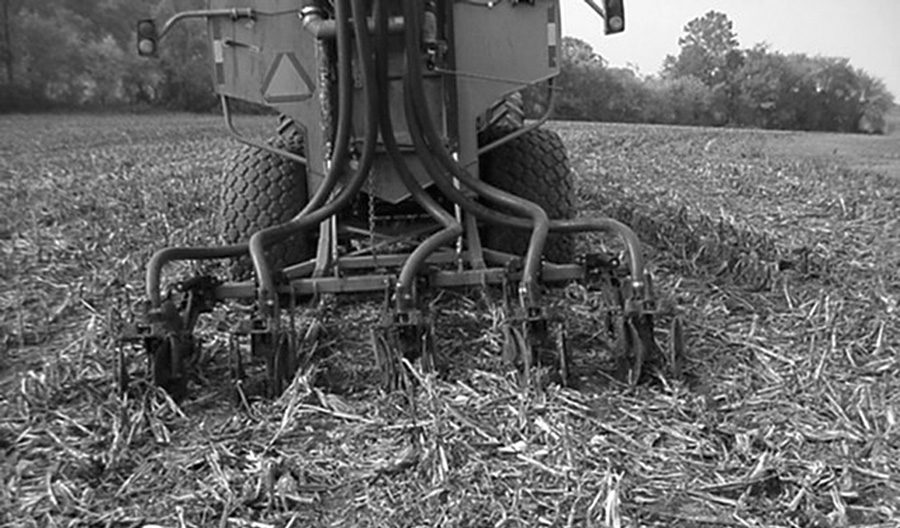No-Till Farmer
Get full access NOW to the most comprehensive, powerful and easy-to-use online resource for no-tillage practices. Just one good idea will pay for your subscription hundreds of times over.

Manure simply doesn’t get the respect that it probably deserves. While some might chuckle at this comment, Dirk Axe points out that manure provides valuable nutrients that, when handled correctly, can be used as low-cost fertilizer in no-till crop production.
The key, says the agronomist with IMC Global in Lake Forest, Ill., is to prevent costly ammonia loss and nitrification of the manure.
Nitrification and other nitrogen losses, such as ammonia, from manure can run as high as 75 percent. If not handled, stored and applied properly, these losses present both environmental and odor problems. They also reduce the effectiveness of manure as a low-cost fertilizer with no-tilled crops.
Preventing Losses.
Most nitrogen in manure is lost through volatilization, especially when manure is deposited into a deep pit or lagoon. It also is lost in daily scraping, hauling and when manure is spread over a field.
“The sooner you take manure from the point of production to incorporation into the land, the more you can conserve nitrogen,” says Axe. “The more you lose gas off nitrogen, as in ammonia volatility, the more you’re going to lose along the way. As a result, no-tillers can have a huge impact on nitrogen conservation simply by the way they handle manure.”
One way is to treat manure the same as one would treat concentrated crop nutrients, and that may include using products such as Agrotain or Super N, says Axe. Agrotain can be topically applied to manure on a weekly basis…